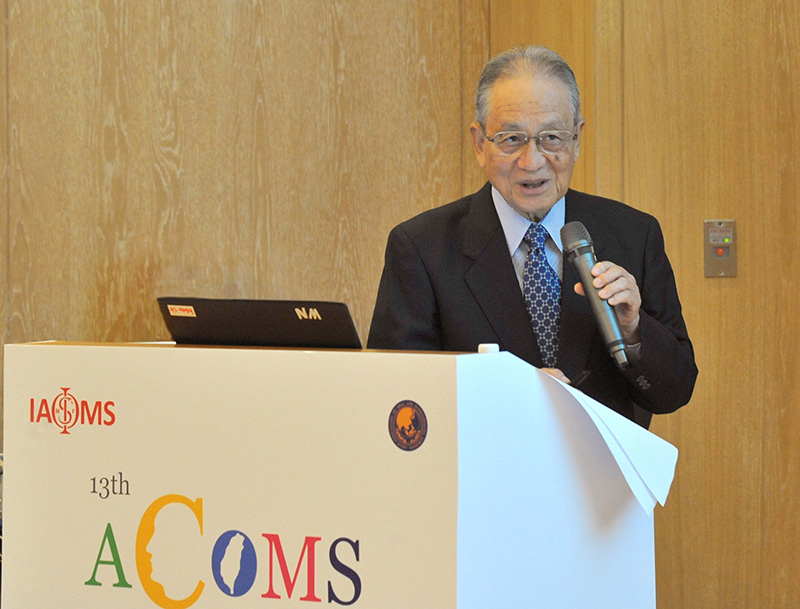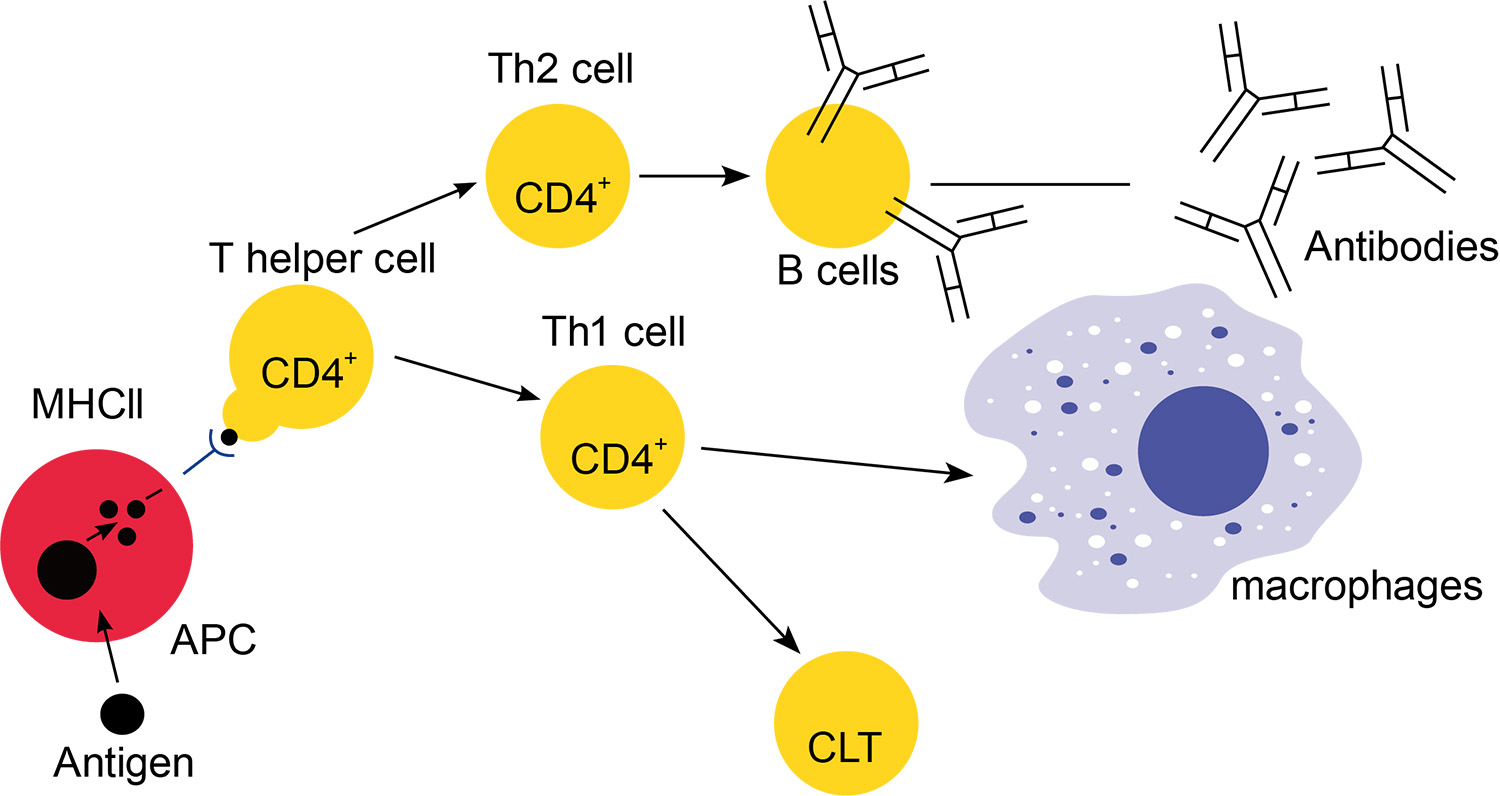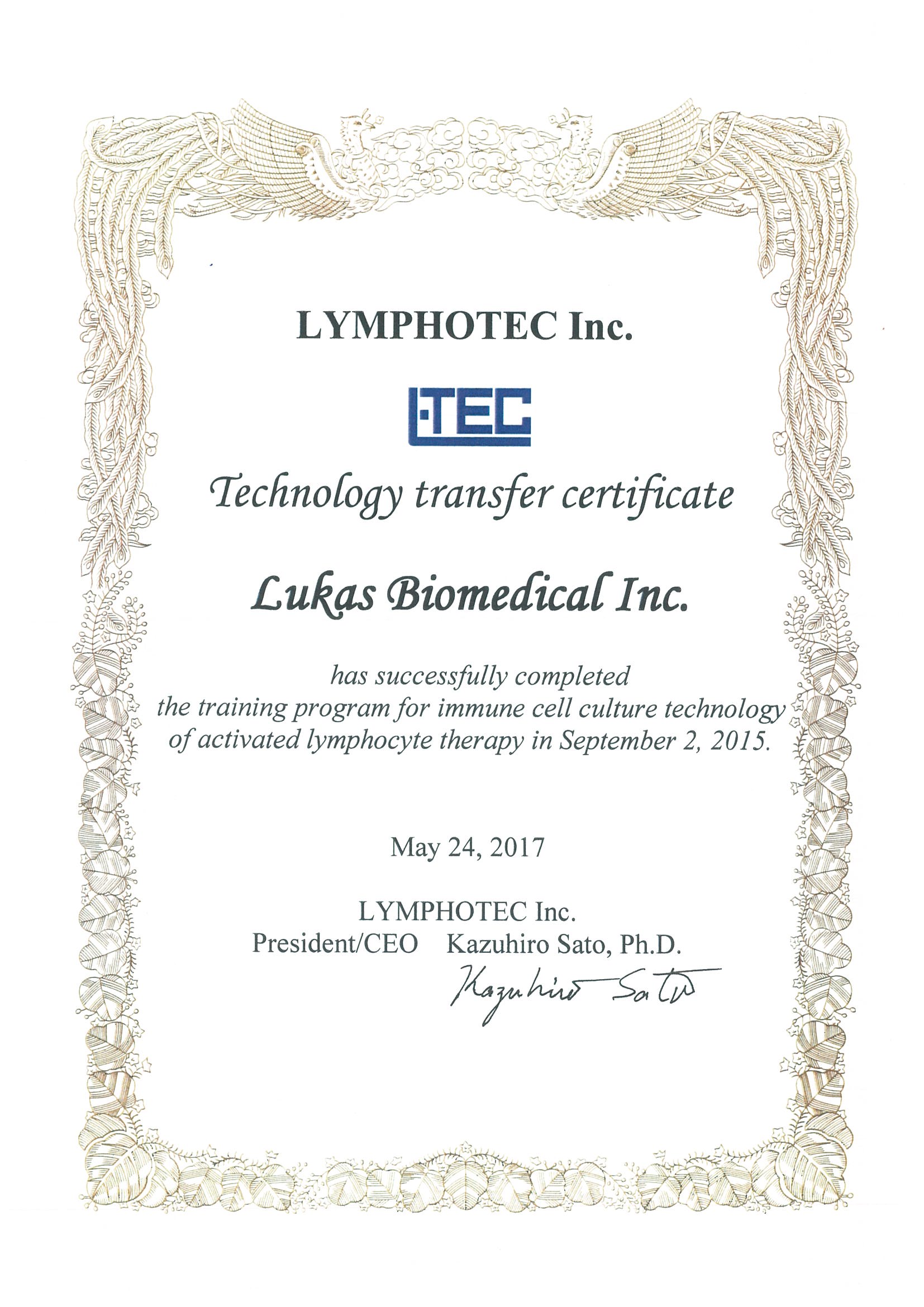Establishing a technical collaboration with Japan's National Cancer Center and Lymphotec Inc.
Lukas Biomedical has transferred Japanese technology back to Taiwan, allowing cancer patients to receive top-tier cancer cell therapy domestically without having to travel abroad.
Note: Lymphotec Inc. of Japan was founded in 1999 by Dr. Teruaki Sekine, Principal Investigator of the National Cancer Center Research Institute.

Memory T cells are crucial in cancer treatment
Immunotherapy is the new trend in cancer treatment today. Cancer immunotherapy helps the immune system identify cancer cells and strengthens the immune response to destroy tumors.
T cell immunotherapy, in particular, strengthens and activates the T cells within the human body. Memory T cells have unique specificity and memory. While effector T cells diminish and retreat after attacking cancer cells, memory T cells persist in the body and retain the characteristics of the tumor. Upon the tumor's reappearance, these memory T cells can promptly eliminate it.
The actual procedure involves extracting blood from the patient, using a GTP laboratory to cultivate and activate a large number of immune T cells from the blood, and then reintroducing these activated T cells back into the patient’s body to fight cancer cells.

The Advantages of T Cells, the top tumor killers
LuLym, the core cancer-fighting technology of Lukas Biomedical, utilizes T cells from the immune system to treat cancer. T cells are the most abundant group of cells in the adaptive immune system. They can be categorized into many types based on their function and surface markers (such as CD4+ and CD8+). The primary T cells used for cancer treatment are helper T cells (such as CD4+ helper T cells, Th) and cytotoxic T cells (CD8+ cytotoxic T cells, Tc or CTL). Since helper T cells have CD4+ molecules on their surface, they are called CD4+ T cells. These cells alert other immune units to enemy invasion and have memory properties. Therefore, when they encounter specific cancer cells again, they can immediately recognize them and activate the immune system to respond. They secrete cytokines to regulate the immune system.
Cytotoxic T cells, named CD8+ T cells due to the CD8+ molecules on their surface, act as a specialized attack force capable of recognizing and eliminating specific enemies.
- Antigen-presenting cells (APCs) display peptide antigens on their surface through major histocompatibility complex (MHC) molecules, which specifically bind to receptors on CD4+ T cells, thereby triggering an immune response.
When interleukin-12 (IL-12) is secreted, it stimulates CD4+ T cells to differentiate into Th1 cells, promoting the release of interferon-gamma (IFN-γ), which in turn drives macrophages and cytotoxic T lymphocytes (CTLs) to kill infected cells. CTLs release granzymes and perforin into infected cells, inducing apoptosis. - Interleukin-4 (IL-4) induces the differentiation of cells into Th2 cells, which support B cells in producing antibodies to combat infection.




